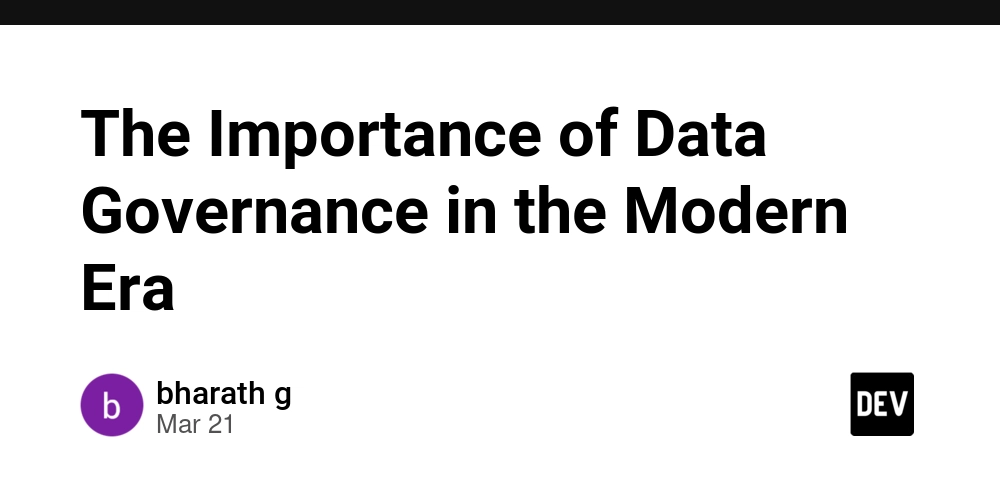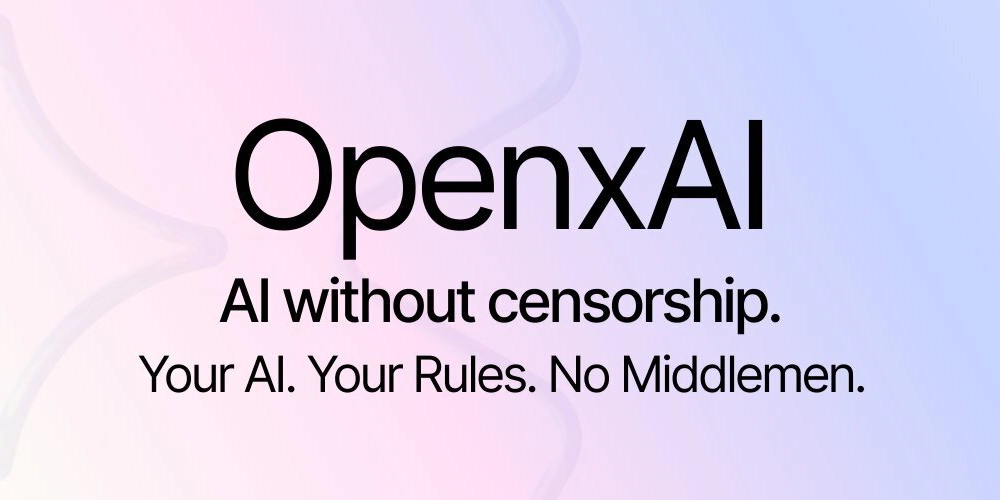The Importance of Data Governance in the Modern Era
In today’s data-driven world, businesses across industries are generating more data than ever before. From customer insights to operational metrics, the volume and complexity of data have exploded, presenting both enormous opportunities and significant risks. As data becomes a central part of decision-making, the need for robust data governance has never been more critical. But why is data governance so important, and what role does it play in the modern era? What is Data Governance? Data governance refers to the processes, policies, and standards that ensure the accuracy, availability, security, and proper use of data across an organization. It involves defining how data is collected, stored, managed, shared, and disposed of, with the goal of ensuring data integrity, compliance, and privacy throughout its lifecycle. In essence, data governance is about ensuring that organizations can trust their data to make informed decisions while adhering to legal, ethical, and regulatory requirements. Why is Data Governance Critical in the Modern Era? Data Privacy and Compliance Regulations The world has seen a significant uptick in regulations related to data privacy and protection in recent years. Laws such as the General Data Protection Regulation (GDPR) in Europe, the California Consumer Privacy Act (CCPA), and the California Privacy Rights Act (CPRA) in the United States, require companies to take a proactive approach to protect sensitive customer data. Data governance frameworks ensure that organizations are not only compliant with these regulations but also prepared for future legislative changes. Inadequate governance can lead to non-compliance, resulting in costly fines and reputational damage. Ensuring Data Quality Data quality is a cornerstone of effective decision-making. Poor-quality data leads to inaccurate insights, which can result in misguided strategies and missed business opportunities. A solid data governance framework helps maintain data integrity, ensuring that data is accurate, consistent, and up-to-date across all systems. For example, data governance practices like data profiling and data cleansing are vital in identifying and rectifying errors in datasets, preventing problems from cascading across the organization. With reliable data, organizations can make confident, data-driven decisions that drive success. Data Security and Risk Mitigation As data breaches and cyber threats become increasingly sophisticated, securing data has become a top priority for organizations worldwide. Effective data governance encompasses policies and practices for data encryption, access controls, and incident response to safeguard against breaches. With growing threats from both external attackers and internal vulnerabilities, companies need a proactive approach to security. A robust governance strategy helps identify sensitive data, set up adequate safeguards, and respond swiftly to incidents, ultimately protecting an organization’s valuable intellectual property and customer trust. Improved Collaboration and Data Access In modern organizations, data often resides in multiple silos—whether across departments, business units, or cloud environments. Data governance helps break down these barriers, facilitating data sharing and enabling better collaboration across teams. With a unified approach to data management, businesses can avoid data duplication, ensure consistency, and provide accurate, real-time information to the right stakeholders. When data governance policies are in place, employees across the organization can have secure, role-based access to the information they need, when they need it, without the risk of unauthorized access or misuse. Unlocking the Value of Data In the modern era, data is a strategic asset. Organizations that harness it effectively can drive innovation, optimize processes, and enhance customer experiences. However, to unlock the full value of data, businesses need to ensure that it is well-managed, standardized, and aligned with business goals. With a well-executed data governance strategy, businesses can break down data silos, reduce inefficiencies, and ensure that their data is ready for advanced technologies like artificial intelligence (AI), machine learning (ML), and business analytics. Clean, governed data feeds these technologies, improving their outcomes and providing organizations with deeper insights into their operations and customers. Fostering Trust and Transparency In today’s market, trust is a competitive differentiator. Customers, clients, and partners need to know that their data is being handled responsibly. Strong data governance practices ensure that organizations can demonstrate accountability in how they collect, store, and use personal and business data. By adhering to transparent governance policies and effectively communicating these efforts to stakeholders, organizations can foster greater trust with their customers, which in turn can improve custome

In today’s data-driven world, businesses across industries are generating more data than ever before. From customer insights to operational metrics, the volume and complexity of data have exploded, presenting both enormous opportunities and significant risks. As data becomes a central part of decision-making, the need for robust data governance has never been more critical.
But why is data governance so important, and what role does it play in the modern era?
What is Data Governance?
Data governance refers to the processes, policies, and standards that ensure the accuracy, availability, security, and proper use of data across an organization. It involves defining how data is collected, stored, managed, shared, and disposed of, with the goal of ensuring data integrity, compliance, and privacy throughout its lifecycle.
In essence, data governance is about ensuring that organizations can trust their data to make informed decisions while adhering to legal, ethical, and regulatory requirements.
Why is Data Governance Critical in the Modern Era?
- Data Privacy and Compliance Regulations The world has seen a significant uptick in regulations related to data privacy and protection in recent years. Laws such as the General Data Protection Regulation (GDPR) in Europe, the California Consumer Privacy Act (CCPA), and the California Privacy Rights Act (CPRA) in the United States, require companies to take a proactive approach to protect sensitive customer data. Data governance frameworks ensure that organizations are not only compliant with these regulations but also prepared for future legislative changes. Inadequate governance can lead to non-compliance, resulting in costly fines and reputational damage.
- Ensuring Data Quality Data quality is a cornerstone of effective decision-making. Poor-quality data leads to inaccurate insights, which can result in misguided strategies and missed business opportunities. A solid data governance framework helps maintain data integrity, ensuring that data is accurate, consistent, and up-to-date across all systems. For example, data governance practices like data profiling and data cleansing are vital in identifying and rectifying errors in datasets, preventing problems from cascading across the organization. With reliable data, organizations can make confident, data-driven decisions that drive success.
- Data Security and Risk Mitigation As data breaches and cyber threats become increasingly sophisticated, securing data has become a top priority for organizations worldwide. Effective data governance encompasses policies and practices for data encryption, access controls, and incident response to safeguard against breaches. With growing threats from both external attackers and internal vulnerabilities, companies need a proactive approach to security. A robust governance strategy helps identify sensitive data, set up adequate safeguards, and respond swiftly to incidents, ultimately protecting an organization’s valuable intellectual property and customer trust.
- Improved Collaboration and Data Access In modern organizations, data often resides in multiple silos—whether across departments, business units, or cloud environments. Data governance helps break down these barriers, facilitating data sharing and enabling better collaboration across teams. With a unified approach to data management, businesses can avoid data duplication, ensure consistency, and provide accurate, real-time information to the right stakeholders. When data governance policies are in place, employees across the organization can have secure, role-based access to the information they need, when they need it, without the risk of unauthorized access or misuse.
- Unlocking the Value of Data In the modern era, data is a strategic asset. Organizations that harness it effectively can drive innovation, optimize processes, and enhance customer experiences. However, to unlock the full value of data, businesses need to ensure that it is well-managed, standardized, and aligned with business goals. With a well-executed data governance strategy, businesses can break down data silos, reduce inefficiencies, and ensure that their data is ready for advanced technologies like artificial intelligence (AI), machine learning (ML), and business analytics. Clean, governed data feeds these technologies, improving their outcomes and providing organizations with deeper insights into their operations and customers.
- Fostering Trust and Transparency In today’s market, trust is a competitive differentiator. Customers, clients, and partners need to know that their data is being handled responsibly. Strong data governance practices ensure that organizations can demonstrate accountability in how they collect, store, and use personal and business data. By adhering to transparent governance policies and effectively communicating these efforts to stakeholders, organizations can foster greater trust with their customers, which in turn can improve customer loyalty and brand reputation. Conclusion Data governance is no longer an optional business practice—it's a strategic necessity in the modern era. As the volume of data continues to grow, and as organizations face increasing pressure to comply with regulatory requirements and ensure data security, adopting robust data governance practices is the best way to ensure the accuracy, security, and value of organizational data. Investing in data governance provides businesses with a foundation for improved decision-making, enhanced collaboration, and better risk management. By building trust with customers and complying with regulations, companies can set themselves up for sustainable success in an increasingly data-driven world.











































































































































































![[The AI Show Episode 142]: ChatGPT’s New Image Generator, Studio Ghibli Craze and Backlash, Gemini 2.5, OpenAI Academy, 4o Updates, Vibe Marketing & xAI Acquires X](https://www.marketingaiinstitute.com/hubfs/ep%20142%20cover.png)




























































































































![[DEALS] The Premium Learn to Code Certification Bundle (97% off) & Other Deals Up To 98% Off – Offers End Soon!](https://www.javacodegeeks.com/wp-content/uploads/2012/12/jcg-logo.jpg)


![From drop-out to software architect with Jason Lengstorf [Podcast #167]](https://cdn.hashnode.com/res/hashnode/image/upload/v1743796461357/f3d19cd7-e6f5-4d7c-8bfc-eb974bc8da68.png?#)








































































































.png?#)

































_Christophe_Coat_Alamy.jpg?#)
 (1).webp?#)





































































































![Apple Considers Delaying Smart Home Hub Until 2026 [Gurman]](https://www.iclarified.com/images/news/96946/96946/96946-640.jpg)
![iPhone 17 Pro Won't Feature Two-Toned Back [Gurman]](https://www.iclarified.com/images/news/96944/96944/96944-640.jpg)
![Tariffs Threaten Apple's $999 iPhone Price Point in the U.S. [Gurman]](https://www.iclarified.com/images/news/96943/96943/96943-640.jpg)




































































































































